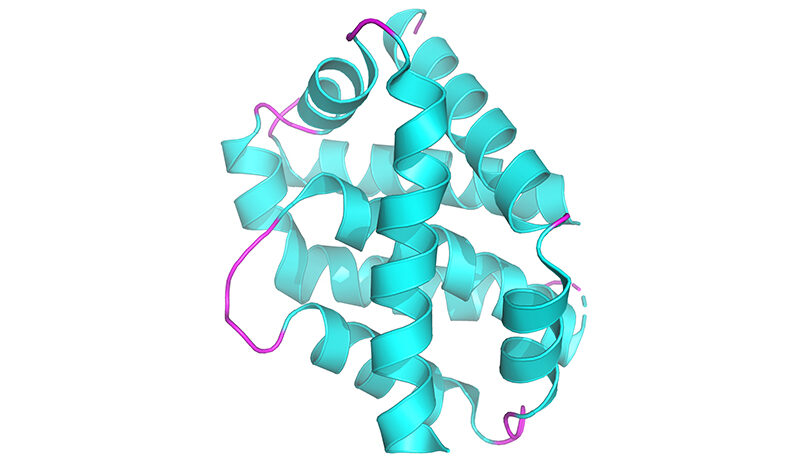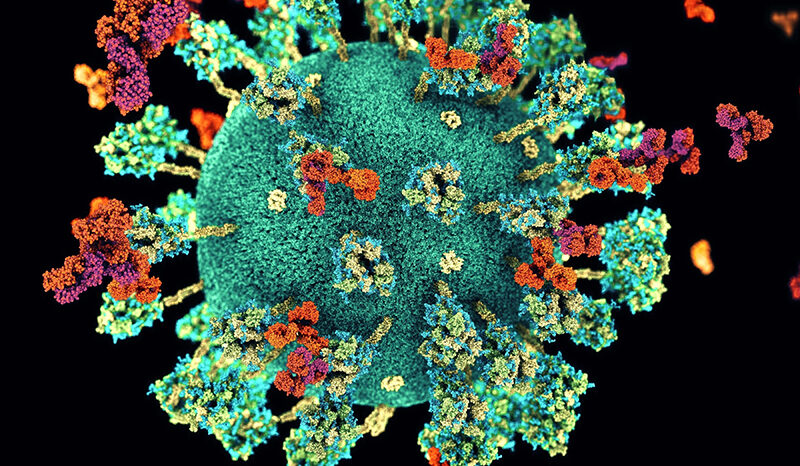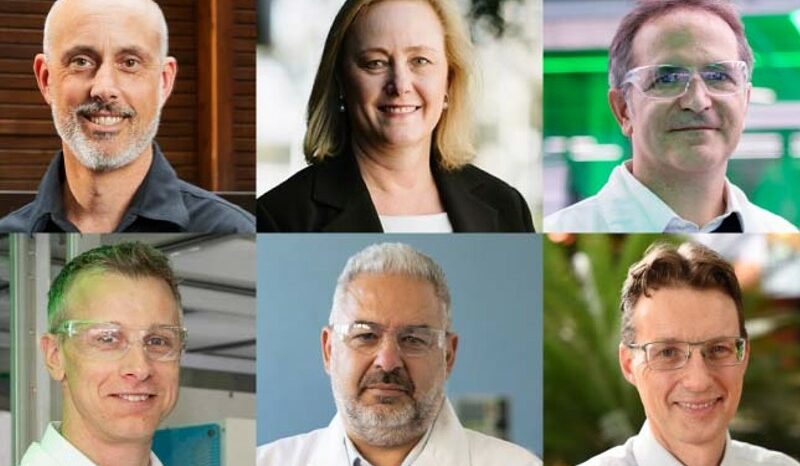Gong J-N, Djajawi TM, Moujalled DM, Pomilio G, Khong T, Zhang L-P, Fedele PL, Low MS, Anderson MA, Riffkin CD, White CA, Lan P, Lessene G, Herold MJ, Strasser A, Spencer A, Grigoriadis G, Wei AH, van Delft MF, Roberts AW, Huang DCS. Re-appraising assays on permeabilized blood cancer cells testing venetoclax or other BH3 mimetic agents selectively targeting pro-survival BCL2 proteins. Cell Death & Differentiation. 2025;:10.1038/s41418-025-01487-7
M. Bader S, Calleja DJ, Devine SM, Kuchel NW, Lu BGC, Wu X, Birkinshaw RW, Bhandari R, Loi K, Volpe R, Khakham Y, Au AE, Blackmore TR, Mackiewicz L, Dayton M, Schaefer J, Scherer L, Stock AT, Cooney JP, Schoffer K, Maluenda A, Kleeman EA, Davidson KC, Allison CC, Ebert G, Chen G, Katneni K, Klemm TA, Nachbur U, Georgy SR, Czabotar PE, Hannan AJ, Putoczki TL, Tanzer M, Pellegrini M, Lechtenberg BC, Charman SA, Call MJ, Mitchell JP, Lowes KN, Lessene G, Doerflinger M, Komander D. A novel PLpro inhibitor improves outcomes in a pre-clinical model of long COVID. Nature Communications. 2025;16(1):10.1038/s41467-025-57905-4
Li K, Yap YQ, Moujalled DM, Sumardy F, Khakham Y, Georgiou A, Jahja M, Lew TE, De Silva M, Luo M-X, Gong J-N, Yuan Z, Birkinshaw RW, Czabotar PE, Lowes K, Huang DCS, Kile BT, Wei AH, Dewson G, van Delft MF, Lessene G. Differential regulation of BAX and BAK apoptotic activity revealed by small molecules. Science Advances. 2025;11(10):10.1126/sciadv.adr8146
Emery‐Corbin SJ, Yousef JM, Adhikari S, Sumardy F, Nhu D, van Delft MF, Lessene G, Dziekan J, Webb AI, Dagley LF. Improved drug target deconvolution with PISA‐DIA using an extended, overlapping temperature gradient. Proteomics. 2024;24(16):10.1002/pmic.202300644
Wu X, Go M, Nguyen JV, Kuchel NW, Lu BGC, Zeglinski K, Lowes KN, Calleja DJ, Mitchell JP, Lessene G, Komander D, Call ME, Call MJ. Mutational profiling of SARS-CoV-2 papain-like protease reveals requirements for function, structure, and drug escape. Nature Communications. 2024;15(1):10.1038/s41467-024-50566-9
Yuan Z, van Delft MF, Li MX, Sumardy F, Smith BJ, Huang DCS, Lessene G, Khakam Y, Jin R, He S, Smith NA, Birkinshaw RW, Czabotar PE, Dewson G. Key residues in the VDAC2-BAK complex can be targeted to modulate apoptosis. PLOS Biology. 2024;22(5):10.1371/journal.pbio.3002617
Chüeh AC, Tse JWT, Dickinson M, Ioannidis P, Jenkins L, Togel L, Tan B, Luk I, Davalos-Salas M, Nightingale R, Thompson MR, Williams BRG, Lessene G, Lee EF, Fairlie WD, Dhillon AS, Mariadason JM. Correction: ATF3 Repression of BCL-XL Determines Apoptotic Sensitivity to HDAC Inhibitors Across Tumor Types.Clinical Cancer Research. 2023;29(18):10.1158/1078-0432.ccr-23-2100
Davies K, Meng Y, Fitzgibbon C, Young S, Garnish S, Horne C, Luo C, Garnier J, Liang L, Cowan A, Samson A, Lessene G, Sandow J, Czabotar P, Murphy J. Dissecting the RIPK3/MLKL necroptotic molecular switch. Acta Crystallographica Section A: Foundations and advances. 2023;79(a2):10.1107/s2053273323087788
Pierotti CL, Jacobsen AV, Grohmann C, Dempsey RK, Etemadi N, Hildebrand JM, Fitzgibbon C, Young SN, Davies KA, Kersten WJA, Silke J, Lowes KN, Sabroux HJ, Huang DCS, van Delft MF, Murphy JM, Lessene G. The VEGFR/PDGFR tyrosine kinase inhibitor, ABT-869, blocks necroptosis by targeting RIPK1 kinase. Biochemical Journal. 2023;480(9):10.1042/bcj20230035
Wang Z, Hu H, Heitink L, Rogers K, You Y, Tan T, Suen CLW, Garnham A, Chen H, Lieschke E, Diepstraten ST, Chang C, Chen T, Moujalled D, Sutherland K, Lessene G, Sieber OM, Visvader J, Kelly GL, Strasser A. The anti-cancer agent APR-246 can activate several programmed cell death processes to kill malignant cells. Cell Death & Differentiation. 2023;30(4):10.1038/s41418-023-01122-3






